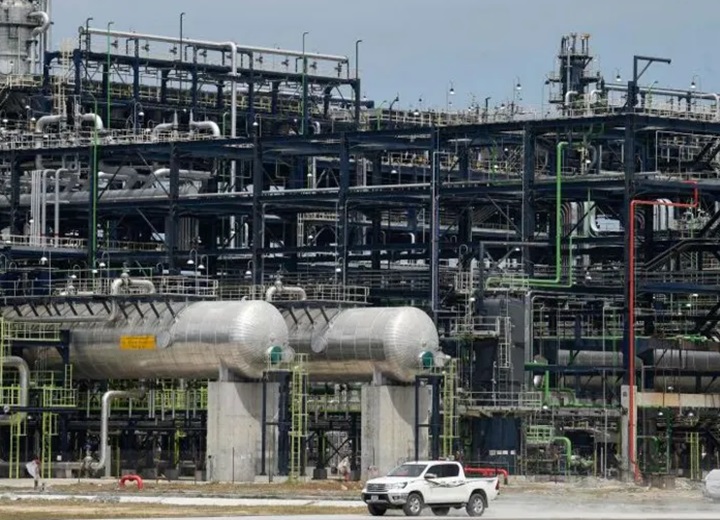A growing chorus of objections has emerged from fuel suppliers across Nigeria following Dangote Refinery’s announcement to roll out a direct fuel distribution strategy. Suppliers warn the move could severely disrupt the downstream supply chain, marginalize existing operators, and hurt competition in fuel marketing and logistics.
Dangote’s plan proposes delivering refined petrol and diesel directly to retail stations, bulk buyers, and industrial firms using its own fleet of Compressed Natural Gas (CNG) tankers. The strategy also includes flexible credit arrangements for large-volume buyers—features the refinery asserts will reduce logistics costs, improve rural access, and ensure consistent fuel supply countrywide.

But suppliers and independent marketers argue that instead of unlocking value, the approach threatens to displace traditional players. Fuel marketers have built businesses around purchasing refined products from marketers or third-party depots, leveraging existing infrastructure, finance arrangements, and logistics networks. These suppliers fear Dangote’s vertically integrated model will redirect volumes away from middlemen, shrinking a service ecosystem that employs truck drivers, depot operators, and logistics firms.
Industry insiders estimate that several thousand stakeholders—small fuel marketers, truck owners, depot operators—may be priced out or forced out of operation. The Petroleum Products Retail Outlets Owners Association of Nigeria (PETROAN) and trade associations representing depot and logistics firms warn of cascading job losses, revenue loss for small-business operators, and a consolidation of market dominance under Dangote’s control.
In response, suppliers have submitted memoranda to both Dangote management and regulatory agencies, requesting regulatory safeguards. They argue that unilateral volume displacement could undermine competition unless adequately constrained by licensing provisions, pricing transparency, and equitable access to bulk supply.
One source within the supply chain highlighted that suppliers have built capital-intensive businesses over decades—incurring significant debt obligations tied to tank farms and logistics infrastructure. “We are not against innovation,” he emphasized, “but if Dangote bypasses marketing channels entirely, many businesses may collapse overnight.”
The proposed plan has also reignited concerns over fuel pricing and consumer impact. Suppliers contend that initial gains in efficiency may ultimately lead to price setting by a dominant actor. In a model where Dangote handles refining, storage, and distribution directly, suppliers worry about potential price rigidity, fewer market entrants, and reduced incentive for competitive pricing over time.
Fuel logistics associations pointed out that Dangote’s offer of free or subsidized delivery—including credit incentives for large-volume buyers—creates uneven competition. Small operators, who rely on their own transport networks and cannot match these terms, would find it difficult to remain price competitive.
Dangote spokespersons defend the strategy, asserting that direct delivery is intended to streamline efficiency, reduce road accidents associated with conventional tanker operations, and improve fuel access in underserved regions. The firm maintains that its fleet upgrade and distribution infrastructure should serve as a complement to existing networks, not a replacement.
Yet the friction persists. Suppliers say regulatory institutions, notably the Nigerian Midstream and Downstream Petroleum Regulatory Authority (NMDPRA), must step in to oversee equitable access rules, enforce anti-monopoly provisions, and ensure Dangote’s rollout includes capacity-building directives for independent marketers and logistics players.
Beyond job losses, the proposed rollout has raised broader issues about the future structure of Nigeria’s fuel market. Analysts suggest that Dangote’s dominance across refining, distribution, and storage could invert the competitive architecture established under the Petroleum Industry Act. They warn that unchecked market power may not only suppress smaller players, but also pose systemic risks if supply is concentrated under a single corporate umbrella.
In response to mounting pressure, Dangote has reportedly initiated dialogue with supplier associations and industry groups to explore collaboration frameworks. Some suppliers have welcomed the opportunity for engagement, though they insist commercial terms must preserve their ability to operate independently. Proposed frameworks include phased integration of Dangote’s fleet into third-party logistics partnerships, transparent contracting mechanisms, and co-distribution arrangements in underserved regions.
Fuel sector economists emphasize that the outcome of these negotiations could reshape the downstream value chain permanently. They argue that well-regulated liberalization—with transitional support—can enhance competition, while unilateral integration may concentrate power in a way that curtails future market entry.
The conflict is unfolding in parallel with broader efforts to address fuel scarcity and price volatility in Nigeria. Government agencies overseeing supply chain regulation, safety, and competition have been urged to monitor Dangote’s distribution rollout carefully, balancing efficiency gains with protection for market diversity.
Despite the uncertainty, suppliers remain firm: any shift in the fuel distribution model must preserve the role of traditional marketers, logistics providers, and depot operators. They are calling for guaranteed access to Dangote’s supply through licensed channels, pricing transparency, and phased implementation that allows businesses to adapt.
As stakeholders await further communication from Dangote and regulators, many are drafting contingency strategies for increased integration with other refineries—or exploring partnerships with regional marketers—to protect market access. At the same time, industry forums are preparing legal and policy briefs to submit to oversight bodies if negotiations fail to deliver equitable frameworks.
Ultimately, suppliers say, Dangote’s distribution strategy offers potential benefits—but only under the right conditions. Without clear regulation, fair competition rules, and support mechanisms, they argue the move could displace businesses that currently form the backbone of Nigeria’s downstream petroleum sector.
As momentum builds toward Dangote’s planned rollout, the critical question remains: will Nigeria’s fuel market transition in a way that promotes inclusion and competition—or evolve into a vertically controlled system dominated by a single player, at the cost of smaller operators and market vibrancy?
Support InfoStride News' Credible Journalism: Only credible journalism can guarantee a fair, accountable and transparent society, including democracy and government. It involves a lot of efforts and money. We need your support. Click here to Donate
